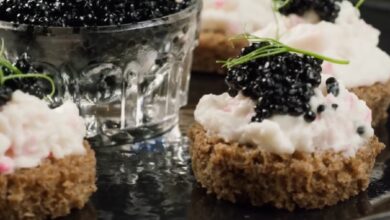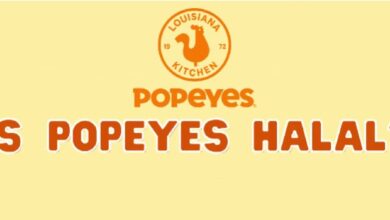Is Lucky Charms Halal
Lucky Charms is a beloved breakfast cereal that has been a staple in many households for decades. Known for its combination of toasted oat pieces and colorful marshmallow shapes, it provides a sweet and whimsical start to the day. However, for Muslim consumers, there is an important question to address: Is Lucky Charms halal?
Introduction
Determining whether a food product is halal (permissible under Islamic law) or haram (forbidden) involves scrutinizing its ingredients and production processes. With the increasing interest in halal dietary guidelines, it is essential to understand the intricacies involved in evaluating popular food items like Lucky Charms. This article delves into the ingredients of Lucky Charms, explains why it may or may not be considered halal, and explores alternative options for those seeking to adhere to halal dietary practices.

Ingredients of Lucky Charms
Lucky Charms consists of two main components: oat pieces and marshmallows (often referred to as “marbits”). Here’s a breakdown of its ingredients:
- Whole Grain Oats
- Sugar
- Corn Starch
- Modified Corn Starch
- Corn Syrup
- Dextrose
- Salt
- Gelatin
- Trisodium Phosphate
- Artificial Colors (Red 40, Yellow 5 & 6, Blue 1)
- Natural and Artificial Flavors
- Vitamins and Minerals (including Vitamin E)
Key Ingredient: Gelatin
The primary concern for Muslim consumers regarding Lucky Charms is the inclusion of gelatin in the marshmallows. Gelatin is a protein derived from the boiling of animal skin, tendons, ligaments, and bones. In the case of Lucky Charms, the gelatin used is derived from pork, which is explicitly haram in Islam.
Halal Concerns
- Pork Gelatin: The gelatin used in Lucky Charms marshmallows is sourced from pork, making it non-halal. This ingredient alone disqualifies the cereal from being halal-friendly.
- Artificial Colors and Flavors: While the artificial colors and flavors in Lucky Charms are generally considered halal as they are lab-synthesized, the presence of pork gelatin remains a significant issue.
Alternatives for Halal Consumers
For those seeking halal alternatives to Lucky Charms, there are several options available:
- Halal-Certified Cereals: Numerous brands offer halal-certified breakfast cereals that do not contain haram ingredients such as pork gelatin. These products provide a safe and enjoyable alternative for halal consumers.
- Homemade Cereal Mixes: Creating your own cereal mix at home using halal ingredients can be a fun and healthy option. You can include oats, dried fruits, nuts, and other halal-friendly components to suit your taste preferences.
Frequently Asked Questions
Are all Lucky Charms products non-halal?
No, not all General Mills products are non-halal, but Lucky Charms and similar cereals like Chocolate Lucky Charms, Count Chocula, Boo Berry, and Frankenberry contain pork-derived gelatin, making them non-halal.
What ingredients in Lucky Charms are specifically non-halal?
The primary non-halal ingredient in Lucky Charms is pork gelatin, which is used in the marshmallows.
Are there any halal-friendly alternatives to Lucky Charms?
Yes, there are several halal-friendly cereals available that do not contain pork-derived gelatin. These can often be found in specialty stores or in the international food section of grocery stores.
Do Lucky Charms marshmallows contain any other controversial ingredients?
Besides pork gelatin, the marshmallows contain artificial colors like Red 40, Blue 1, and Yellow 5 and 6. While these are not always considered non-halal, their sources and processing methods can be a concern for some Muslims.
Can Muslims eat Lucky Charms if they remove the marshmallows?
Even if the marshmallows are removed, cross-contamination and the presence of other non-halal ingredients make it problematic to consider Lucky Charms halal.
Is there a halal certification available for any Lucky Charms products?
Currently, there is no halal certification for Lucky Charms due to the presence of pork-derived gelatin.
What are the consequences of consuming non-halal food in Islam?
Consuming non-halal food is considered haram (forbidden) in Islam, and it goes against dietary laws prescribed in the Quran. Muslims strive to follow these guidelines to maintain spiritual and physical purity.
Why is gelatin often non-halal?
Gelatin is often derived from the collagen in animal bones and skin. If the source is pork or non-halal slaughtered animals, the gelatin is considered non-halal.
Are there any halal certifications for General Mills products?
While some General Mills products might be halal, consumers should look for specific halal certifications on the packaging to be sure.
How can one identify halal cereals?
Halal cereals usually have a halal certification mark on their packaging. It’s also helpful to read the ingredient list and check for any non-halal substances such as pork-derived gelatin.
What is the role of artificial flavors in Lucky Charms?
Artificial flavors in Lucky Charms enhance the taste. These flavors are lab-synthesized and generally considered halal, but their overall halal status depends on other ingredients.
Can the source of gelatin be identified on the packaging?
The packaging typically lists “gelatin” without specifying the source. Contacting the manufacturer or looking up their official statements is often necessary for confirmation.
Do different countries have different versions of Lucky Charms?
Yes, ingredients can vary by country due to different dietary regulations. However, the version sold in the US contains pork-derived gelatin.
What do lucky charms symbolize historically?
Lucky charms have traditionally symbolized good luck and fortune. Common examples include four-leaf clovers, horseshoes, and ladybugs, each associated with various positive attributes and superstitions.
Are there any risks associated with relying on lucky charms?
While the physical risks are minimal, relying too heavily on lucky charms can lead to superstitious beliefs. Some charms might also be associated with negative energy or bad luck if lost.
Conclusion
While Lucky Charms is a popular and delicious cereal, it is not considered halal due to the presence of pork-derived gelatin in its marshmallows. For Muslim consumers, it is important to be mindful of the ingredients in the foods they consume to adhere to halal dietary guidelines. Fortunately, there are plenty of halal-certified cereals and alternative options available that can provide a similar taste and enjoyment without compromising on religious beliefs.
Read also: Lucky Charms Nutrition Facts




